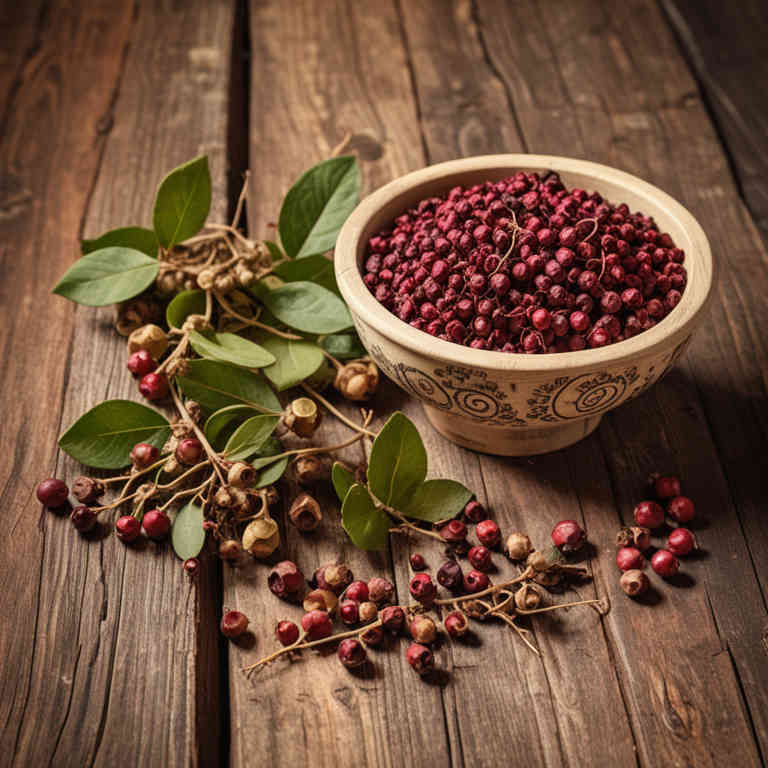Vaccinium macrocarpon decoction for medicinal use

Vaccinium macrocarpon decoction is a preparation made by boiling the berries of the highbush blueberry plant.
It is commonly used in herbalism for its potential health benefits, including supporting urinary tract health and acting as a mild diuretic. The decoction may also be used to soothe digestive discomfort and promote kidney function. Traditionally, it has been employed in folk medicine to address issues like bladder infections and inflammation.
Its mild nature makes it a popular choice for those seeking natural remedies for urinary and digestive wellness.
Uses
Vaccinium macrocarpon decoction has been used to treat digestive issues and cold symptoms for centuries.
Historically, it was utilized by Indigenous peoples of North America, who valued its medicinal properties for its warming effects and ability to soothe the stomach. In traditional medicine, the decoction was also used to alleviate respiratory conditions and as a general tonic to boost vitality. Modern herbal practitioners continue to use it for its antimicrobial and anti-inflammatory properties, often in the form of a tea or tincture.
Today, it is also being studied for its potential benefits in supporting immune function and digestive health.
Benefits
Vaccinium macrocarpon decoction has health benefits such as promoting digestive health, supporting immune function, and providing antioxidant properties.
This herbal preparation, derived from the American cranberry, is known for its high concentration of proanthocyanidins, which help prevent urinary tract infections by reducing bacterial adhesion. It also contains vitamins C and E, which contribute to its anti-inflammatory and immune-boosting effects. The decoction may aid in reducing oxidative stress and improving overall metabolic health.
Additionally, it is traditionally used to support bladder and kidney health due to its diuretic and antimicrobial properties.
Constituents
Vaccinium macrocarpon decoction active constituents include anthocyanins, proanthocyanidins, flavonoids, tannins, and organic acids.
These compounds contribute to the decoction's antioxidant, anti-inflammatory, and antimicrobial properties. Anthocyanins and proanthocyanidins are particularly noted for their ability to support cardiovascular health and improve urinary tract function. The tannins in the decoction may aid in digestive health by reducing inflammation in the gastrointestinal tract.
Overall, these active constituents make Vaccinium macrocarpon decoction a valuable herbal preparation for promoting general wellness and supporting various bodily functions.
Preparation
To make Vaccinium macrocarpon decoction, begin by gathering 1 to 2 tablespoons of dried cranberries or fresh cranberry fruit.
Rinse the cranberries thoroughly and place them in a pot with 2 cups of water. Bring the mixture to a boil, then reduce the heat and let it simmer for about 15 to 20 minutes. Strain the liquid through a fine mesh strainer or cheesecloth to remove the solids.
Allow the decoction to cool slightly before use, and store any excess in a sealed container in the refrigerator for up to 3 days.
Side Effects
Vaccinium macrocarpon decoction may lead to gastrointestinal discomfort, including nausea, vomiting, and diarrhea, due to its high acidity and potential irritant properties.
It may also cause allergic reactions in individuals sensitive to the plant, manifesting as skin rashes, itching, or respiratory symptoms. Prolonged use could lead to liver or kidney damage, as some compounds in the decoction may be toxic in large amounts. It is not recommended for pregnant or breastfeeding women due to possible harm to the fetus or infant.
Always consult a healthcare professional before using this preparation, especially for extended periods or in high doses.